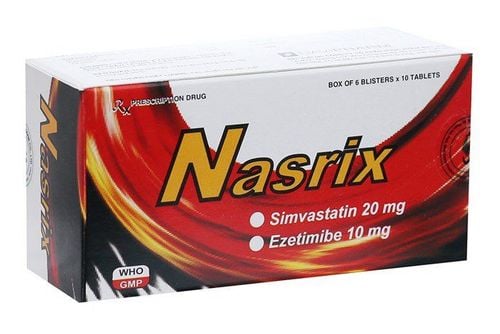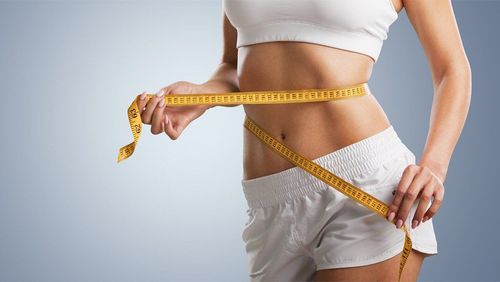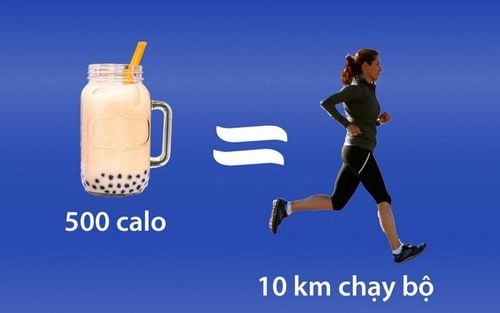This is an automatically translated article.
When you know how many calories you need to maintain your weight to get in shape. If you want to lose 1kg per week, reduce your daily calorie needs by 500 calories per day. Most women desire 1,200 calories per day to lose weight, while men typically figure closer to 1,800 calories per day to lose weight. In the article below will help you know how to count calories to lose weight.1. What are calories?
Calorie is a unit of measurement that describes the amount of energy a certain food or drink has. The same unit of measurement is used to describe the amount of energy you use in a day (calories burned).Technically, dietary calories are defined as the amount of energy required to raise the temperature of 1 kg of water by 1 degree C.
You use the calories that you eat and drink for essential functions such as breathing. and thinking, as well as everyday activities such as walking, talking, and eating.
Any excess calories you eat will be stored as fat and consistently eating more than you burn will cause you to gain weight over time.
To lose weight, you must burn more calories than you consume, and to gain weight, you must consume more calories than you burn. If you're interested in changing your weight one way or another, you'll need to create a calorie deficit or calorie surplus - and to ensure you stay within your desired surplus or deficit, You need to keep track of the calories you eat and burn. You can create the calorie balance you desire by counting the calories you eat and burn.
2. How to count calories to lose weight and promote health
To lose weight, you need to eat fewer calories than you burn.In theory, this sounds pretty simple.
However, managing your food intake in the modern food environment can be difficult.
Calorie counting is one way to solve this problem and is often used for weight loss.
Let's say you want to lose 4.5kg in 10 weeks (equivalent to about 450g per week). One pound of body fat equates to 3,500 calories, although that's likely to vary between individuals depending on your body fat density and how your body composition changes over time.
Based on a 3,500-calorie estimate, you'd need to create a 3,500-calorie calorie deficit per week to lose that 450g. You can do this in a few ways like:
Reduce your calorie intake by 500 calories per day Increase your exercise to burn 500 calories per day Combine the two, for example reduce your calorie intake your 250 calories a day and burn an extra 250 calories a day through exercise The bottom line of all weight loss programs is a change in your calorie balance through diet and exercise habits, although that bottom line can be disguised by other tactics, like intermittent fasting or food group exclusions.
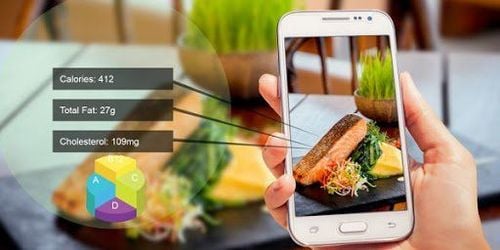
Đếm lượng calo là cách phổ biến khi bạn muốn giảm cân
However, when it comes to your weight, calories count.
This is a fact that has been proven time and time again in scientific experiments known as overfeeding studies.
These studies ask people to intentionally overeat and then measure the impact on their weight and health.
All studies on overfeeding have found that, when people eat more calories than they burn, they gain weight.
Calorie counting is not for everyone. Nor is it any kind of food tracking or logging, for that matter. Some people just want to eat food and enjoy it without worrying about the calorie value. Some people just don't have the time or energy to count calories (perhaps most of us), and others have health goals that don't involve counting calories.
This simple fact means that counting calories and limiting your intake can be effective for preventing weight gain or weight loss, as long as you work to stick to it.
One review found that weight loss programs that included calorie counting resulted in an average weight loss of about 7 lbs (3.3 kg) compared with those that did not.
2.2. When calorie counting works and when not Calorie counting works when:
Your focus is on losing or gaining weight You want a simple, no-frills way to keep tabs on your diet You need tracking for medical reasons Calorie counting is not the best method if: You want to change your body composition (tracking macros is a better approach to bodybuilding) You want or need to monitor micronutrients , such as specific vitamins or minerals You have a history of eating disorders and feel like you want to drastically cut calories to unhealthy levels You're not really sure how many calories to eat 2.3. How many calories you should eat How many calories you need depends on factors, such as gender, age, weight, and activity level.
For example, a 25-year-old male athlete will need more calories than a 70-year-old woman who does not exercise.
If you are trying to lose weight then you will need to create a calorie deficit by eating less than your body burns.
How many calories should you eat on average? The answer to this question will depend on many factors, including your age, height, current weight, activity level and metabolic health, and several others.
When trying to lose weight, a general rule of thumb is to reduce your calorie intake to 500 fewer calories than your body needs to maintain your current weight. This will help you lose 1 pound (0.45 kg) of body weight per week.
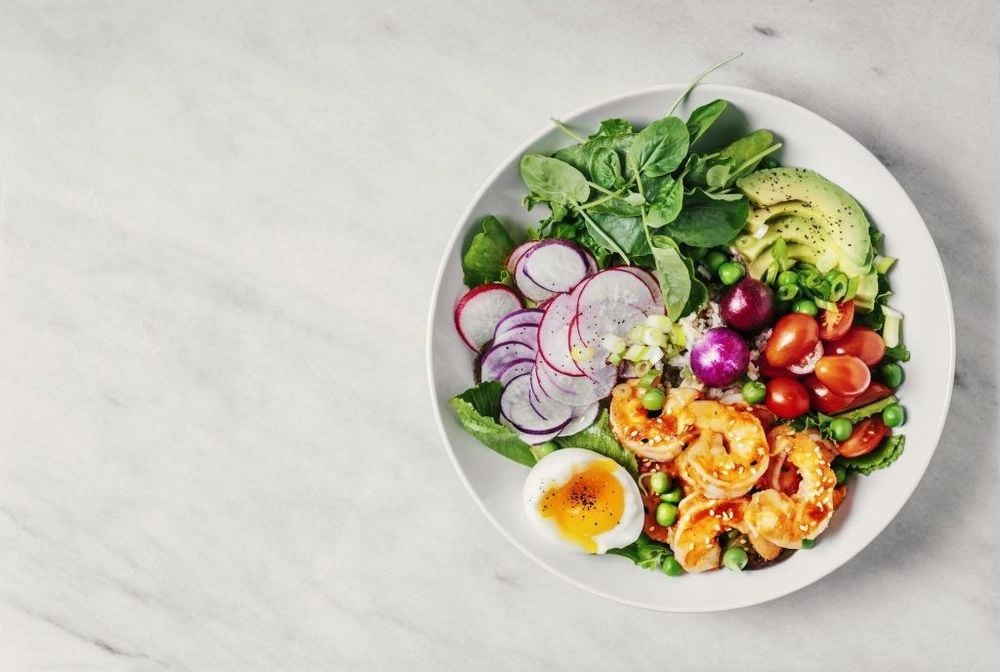
Lượng calo tiêu thụ phù hợp để giảm cân tùy thuộc vào thể trạng từng người
Women The average, moderately active woman between the ages of 26 and 50 needs about 2,000 calories a day to maintain weight and 1,500 calories a day to lose 1 pound (0.45 kg). weight for each week.
Women who are active and walk more than 3 miles, one day need to consume 2,200 calories or more to maintain their weight and at least 1,700 calories to lose 1 pound (0, 45 kg) weight for each week.
Young women in their 20s have higher calorie needs. They need 2,200 calories per day to maintain their weight.
Women over 50 will usually need fewer calories. The average moderately active woman over 50 will need 1,800 calories per day to maintain weight and 1,300 calories per day to lose 1 pound (0.45 kg) per week.
These estimates will not apply to women who are pregnant or breastfeeding, as they have significantly higher calorie needs.
Men The average, moderately active man between the ages of 26 and 45 needs 2,600 calories per day to maintain weight and 2,100 calories per day to lose 1 pound (0.45 kg) per week. Active walkers with more than 3 miles per day may require approximately 2,800 - 3,000 calories per day to maintain their weight and 2,300 - 2,500 calories per day to lose 1 pound (0.45 kg) of weight. amount per week.
Young men aged 19-25 years have higher energy needs. They need 2,800 calories per day to maintain their weight and up to about 3,000 if they are active. To lose 1 pound (0.45 kg) per week, moderately active young men should consume 2,300 – 2,500 calories per day.
Energy needs decrease as men age. Between the ages of 46 and 65, men need moderate activity at an average of 2,400 calories per day. After 66 years, the average man's calorie needs will gradually decrease to about 2,200 calories per day.
Children Children often have very different calorie needs based on their age, size and activity level.
The average toddler will need 1,200 – 1,400 calories per day, and the average moderately active teenager will need 2,000 – 2,800 calories per day. Active teen boys need more than that.
Children who are growing and developing normally and participating in regular physical activity usually don't need to count calories. When they are offered a range of healthy eating options, most children who are moderately active will naturally eat as much food as their bodies require.
The best apps to help you count calories
Due to advances in technology, calorie counting into practice these days can be relatively easy.
Lots of apps and websites are available to simplify the process by providing quick and easy ways to record the food you eat.
Here is a bunch of lists of some of the most popular free calorie calculator apps/websites:
My Fitness Pal. Lose It! FatSecret. Cron-o-meter. SparkPeople. 2.4. How to start counting calories the right way Calorie counting can help you combat overeating by giving you a better idea of how much you're actually consuming.
However, for it to work, you need to record food servings correctly. Here are some common ways to measure portion sizes:
Weighing : The most accurate way to determine how much food you are eating is to weigh your food. However, this can be quite time consuming and not always practical. Volume measurement: Standard volumetric measures are a bit quicker and easier to use than balances, but can still be time consuming and difficult at times. Compare: Using compare with common items is quick and easy, especially if you're away from home. However, it is also much less accurate. The first thing you need to do is determine how many calories you need each day. Counting them is not good if you eat too little or too much. The absolute best way to determine your daily calorie allowance is to work with a registered dietitian, doctor or dietitian who can take into account your weight, height, medical history, and medical history. Your health and goals to calculate your ideal daily calorie intake.
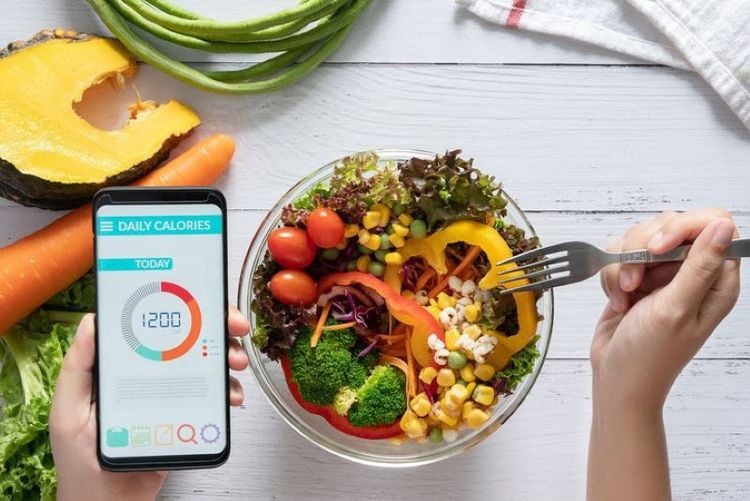
Bạn có thể đếm calo bằng cách cân, đo thể tích hoặc so sánh
Packaged food logging Counting calories in packaged foods is easy: Just look at the nutrition facts label and record the calories. Don't forget about serving sizes, though - if you're eating two servings, double the calories on the label.
Fresh food logging Tracking fresh food is a bit more difficult than tracking packaged food because there are often no labels. But it is very easy to find calorie data online. You can search almost any food on the FDA's Food Central database for complete nutritional information. Most food tracking apps also have huge databases of food, so don't let the lack of nutrition labels stop you from eating fresh food.
Journaling Restaurant Meals Recording calories in restaurant meals can be difficult if the restaurant is not a chain. In 2018, the FDA required all US restaurants with more than 20 locations to disclose calorie information for all menu items, so it's easy if you're eating at a restaurant. regional or national chain. Local restaurants aren't required to disclose calorie counts, but if you ask your waiter, chances are they'll find out.
Drink diary Don't forget to count the calories in the drinks you drink during the day. Unless you drink nothing but plain water and calorie-free beverages (including black coffee and tea without sweeteners or milk), your drinks will contribute to your daily calorie intake. Make sure to count the calories from the cream in your coffee, sports drinks, alcohol, soda, and juices.
5 more tips for success with calorie counting Here are 5 more tips for counting calories:
Preparation: Before you start, download a calorie counting app or online tool, decide how you will measure or portion estimation and meal planning. Read food labels: Food labels contain a lot of useful information for counting calories. Make sure you check the recommended serving size on the package. Eliminate Temptation: Eliminate junk food from your home. This will help you choose healthier snacks and make it easier to reach your goals. Slow and steady weight loss goals: Don't cut calories too low. Although you will lose weight faster, you may feel bad and be less able to stick to your plan. Fuel your workouts: The most successful weight loss programs include both diet and exercise. Make sure to eat enough to still have energy to exercise. 2.5. The quality of your diet is still important Calories are useful for tracking how much you eat, but they don't tell you much about the quality of your diet
When it comes to food and the human body, calories are not necessarily calories.
For example, 100 calories of broccoli will affect your health differently than 100 calories of french fries.
This is important because your overall diet and the foods you eat have an effect on your health
For example, a 100-calorie serving of almonds affects your body differently more than the 100 calories of a Twinkie. Almonds have fiber, protein, healthy fats, vitamins and minerals, while Twinkie contains mostly sugar and saturated fat. A handful of almonds will give you sustained energy; Twinkie will likely cause your blood sugar to spike and drop — and those are only short-term effects.
In the long run, almonds offer health benefits such as blood sugar control and cholesterol reduction. Many of the ingredients in Twinkies -- sugar, high-fructose corn syrup, and some hydrogenated oils -- have been linked to an increased risk of chronic diseases.
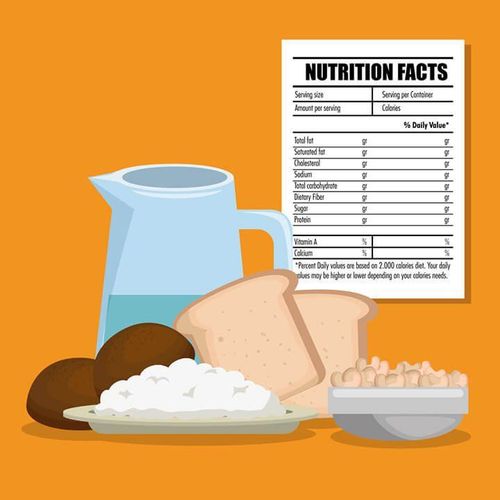
Đọc nhãn thực phẩm cũng giúp bạn biết thêm thông tin và đếm calo đúng cách
If you are interested in the pursuit of health, want to fight chronic diseases, maintain fitness and age in a healthy way, the best way is to pay attention to both the calories and the quality of the food you eat.
High quality food not only benefits your health but also helps to consume fewer calories in the long run.
If you have any questions related to the topic of nutrition for the body that need advice from a doctor, you can leave your question in the ASK VINMEC DOCTOR section directly on the hospital website. Your question will be sent to the doctor and you will receive a consultation as soon as possible!
Please dial HOTLINE for more information or register for an appointment HERE. Download MyVinmec app to make appointments faster and to manage your bookings easily.
Reference sources: healthline.com, cnet.com



